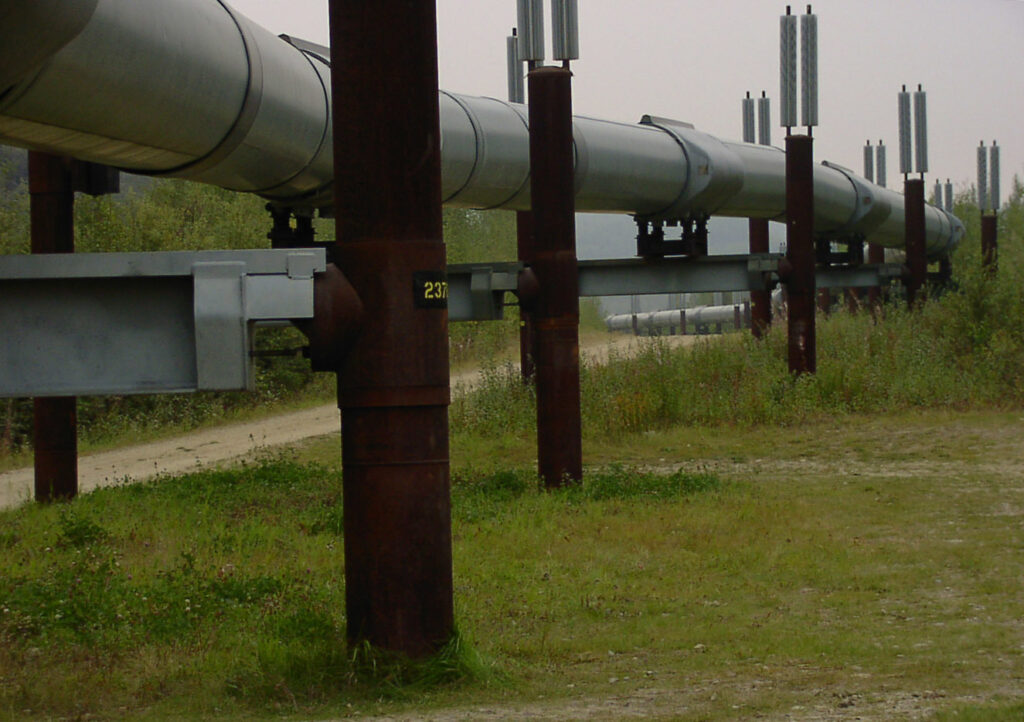Canada is eager to provide the United States with valuable oil from a friendly nation, but environmental activists are urging the Obama administration to block construction of an oil pipeline that would deliver the oil from western Canada to refineries in Texas.
Obama Administration Undecided
At issue is a long-delayed, $7 billion, 1,700-mile expansion of a pipeline that would make possible the sending of crude oil from Alberta’s oil sands to refineries in Houston and Port Arthur, Texas.
TransCanada, the Canadian oil company behind the project, started work on the first phase of the pipeline, known as Keystone 1, in 2005. But the project’s second phase, Keystone XL, has been tied up in Washington’s red tape for three years. Keystone XL would stretch from Alberta through Montana, North Dakota, South Dakota, Nebraska, Kansas, Oklahoma, and Texas.
The State Department, which has the lead jurisdiction over the project, is in the final stages of completing a 1,000-page environmental impact assessment. The State Department is expected to complete its assessment within the next month, followed by a 90-day comment period for federal agencies.
In its first two reviews of the environmental issues involved, the State Department has leaned toward approval of the project. But the Environmental Protection Agency (EPA) has expressed strong reservations, allowing a cloud of doubt to form over the outcome. A final decision on the project, after agency comments are received, is due by the end of the year.
If the Obama administration blocks construction of the pipeline, China has expressed strong interest in purchasing the Canadian oil instead.
Backdoor Climate Battle
Opponents of the projects point out the pipeline would pass through Nebraska’s Ogallala Aquifer, a major source of drinking water for the Midwest. TransCanada says its pipelines are among the safest in the world, and whenever spills occur on one of their structures, they are small and quickly cleaned up.
But what really has environmentalists up in arms are the future greenhouse gas emissions associated with the Canadian oil.
A network of environmental activist groups, including Greenpeace, the Sierra Club, Environmental Defense, the Natural Resources Defense Council, and Friends of the Earth, launched a two-week-long sit-in outside the White House in August. Saying they wanted to “defuse the biggest carbon bomb in North America,” the demonstrators are seeking to persuade President Obama to kill the Keystone XL project. When the sit-in got underway August 20, Obama was on vacation in Martha’s Vineyard.
Enhanced Environmental Monitoring
In late July, Canada’s Environment Minister, Peter Kent, released a comprehensive monitoring plan that will focus on the air quality, biodiversity, and water quality in the oil sands region. Kent said the Canadian federal government would partner with the Alberta provincial government and the scientific community to ensure oil sands production is carried out in an environmentally sustainable manner.
The monitoring plan increases the number of monitoring sites and will closely monitor water quality downstream from oil sands production. The increased environmental monitoring measures are expected to cost $50 million per year, which will be billed to oil production companies.
Economic Boost
Supporters of the pipeline project say it will create 13,000 direct construction jobs and 7,000 manufacturing jobs in the United States. This is in addition to giving the United States an additional source of oil outside the politically unstable Middle East.
Ulterior Motives
“It’s tough to see why environmentalists dislike the Keystone XL pipeline so much,” said Daniel Simmons, director of state policy for the Institute for Energy Research. “They complain about greenhouse-gas emissions from Canadian oil production, but say nothing about emissions from similar oil imported from Hugo Chavez’s Venezuela.
“Environmental activists complain about pipeline safety,” Simmons added, “but fail to mention that importing oil through pipelines is much safer and environmentally friendly than importing the oil on ships and trucks. Looking at their complaints makes you wonder if their real goal is merely to increase the price and reduce the supply of oil.”
Bonner R. Cohen, Ph. D. ([email protected]) is a senior fellow at the National Center for Public Policy Research.





